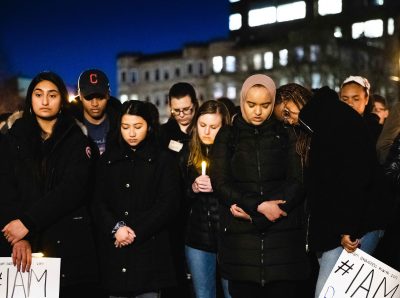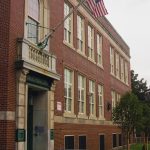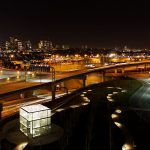
After more than 51 people were killed in an attack on two mosques in Christchurch, New Zealand, last Friday, leaders in the Boston Muslim community and City officials have stood in solidarity with the victims.
In a press release Friday, the Muslim Justice League, which is based in Boston, thanked those who have stood with the Muslim community in the wake of the shooting as well as those who are working to end white supremacy.
“We are grateful to our friends who have already reached out to express solidarity with Muslim communities during this time, and who embody solidarity every day through their actions,” the release said. “Our liberation from white supremacy and violence is bound up together, and we will continue to build a just world together, through hard work and love.”
Fatema Ahmad, the deputy director of MJL, wrote that anti-Muslim violence is prevalent throughout the United States and in Boston.
“We also know that this interpersonal or individual violence is upheld by institutional anti-Muslim oppression,” Ahmad wrote.
Boston Mayor Martin Walsh condemned the Christchurch attacks in a Twitter statement and extended his support to Muslim communities in the city and around the world.
Boston’s thoughts are with New Zealand and with Muslims all across the world as we mourn the loss of the innocent lives taken from us in a place of peace and worship.
To my Muslim friends and neighbors, Boston stands with you and loves you. -MJW#NewZealandShooting
— Mayor Marty Walsh (@marty_walsh) March 15, 2019
The Islamic Society of Boston Cultural Center hosted an interfaith session, that Walsh attended, on Friday in response to the attack. Yusufi Vali, ISBCC’s director of strategic relations and public affairs, said the service demonstrated diverse backgrounds rising in a united front.
“We have to become vigilant,” Vali said. “Synagogues, churches, mosques are all under attack.”
In the midst of tragedy, Vali said, the city needs to be united against violence, as it only takes one violent person to create tragedy.
“It’s not like we fear anything that will necessarily happen with Bostonians,” Vali said. “The way these things happen is that it takes one person, one lone wolf, who goes crazy and for whatever reason goes hunting and goes violent.”
ISBCC has formulated interfaith relationships including with Jewish, Christian and Atheist neighbors, Vali said.
“We understand there’s a common humanity and know that we are in this together to build stronger communities and stronger cities,” Vali said.
The Islamic Society of Boston University hosted a vigil Monday night on Marsh Plaza for BU students and others in the community.
“We felt that hosting a vigil to honor the victims would provide some sort of solace and comfort for us all,” ISBU secretary Azanta Thakur wrote in an email. “It’s something that not only the entire BU community needed, but we did as well.”
With colleges across the nation recognizing March as Islam Awareness Month, the organization will celebrate with several activities throughout the coming weeks. Thakur wrote she is thankful for the students at BU who strive for political correctness and tolerance.
“Many of the students here strive for tolerance and political correctness which is something I incredibly appreciate,” she wrote. “I am always challenged in my thoughts and my ideas in some conversations I have and I grow from them all the time.”
The climate on BU’s campus is not perfect, Thakur wrote, and there is room to grow. She would like to see more representation on higher levels of staff and faculty.
“Microaggressions are also much more common than you’d think and hope, and we hope as an organization that we are able to educate and spread awareness about Muslims,” Thakur wrote.
Thakur wrote she hopes the Muslim community continues to be supported and heard on campus in the future.
“We hope that this is not the last time our community is supported and heard like this; it’s my hope that we communicate that the Muslim community is ours and it is theirs and it is yours,” Thakur wrote.
Robert Frye, 54, of Kenmore, said he thinks the shooting was a major tragedy.
“It’s obviously a tragic occurrence,” Frye said. “It’s just mind-blowing that these things continue to happen.”
William Spalding, 54, of Fenway, said he thinks there are pros and cons to media coverage politicizing tragedy because it can give the attacker a platform.
“But at the same time, it’s kind of discouraging because every time you turn the news on, there’s no good stories,” Spalding said. “Seventy-five percent of the stories are tragedies or something bad.”
Rosanne O’Hare, 59, of Quincy, said she thinks the way communities respond to acts of hatred is important.
“I was horrified,” O’Hare said. “I think the level of hate that’s allowed somehow got unleashed. I think it’s always there, but there’s a part of me that believes that our response to this is very important, and I think we will respond with love.”















What was their statement when Muslims murdered Christians?